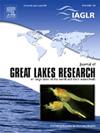Two-year follow-up on an environmental health literacy software intervention for Anishinaabe Native Americans
IF 2.5
3区 环境科学与生态学
Q3 ENVIRONMENTAL SCIENCES
引用次数: 0
Abstract
Fish consumption comprises an important part of what the Anishinaabe (Great Lakes Native Americans) call “minobimaadiziiwin” which translates roughly to “living in a good way.” Industrial activity leading to the accumulation of persistent contaminants in fish disrupts minobimaadiziiwin. Our team of academic and Anishinaabe scientists co-developed a fish consumption advisory for the Anishinaabe using software that can be accessed via mobile phones and the internet. The software, Gigiigoo’inaan (“our fish”) is designed to improve environmental health literacy using culturally congruent messaging and aesthetics. In 2021, we conducted a randomized control trial to test changes in environmental health literacy including fish consumption behaviors. The software was determined to improve confidence whilst maintaining contaminant intakes within advisory (i.e., “safe”) limits. In 2022 and 2023, we updated the software and conducted user follow-up surveys using email recruitment captured by the software on personal devices. During the 2022 follow-up of software users, 90 respondents indicated significant increases of engagement (80.9%), utility (88.8%), and confidence (91.1%) relative to the original control trial. During the 2023 follow-up, after the additional update, those gains increased even further: engagement (98.4%), utility (97.3%), and confidence (97.3%). Iterations of community-engaged software development was associated with improved environmental health literacy metrics across software updates.
对Anishinaabe印第安人环境健康素养软件干预的两年随访
鱼类消费是Anishinaabe(五大湖美洲原住民)称之为“minobimaadiziiwin”的重要组成部分,大致翻译为“以良好的方式生活”。工业活动导致持久性污染物在鱼类体内的积累,破坏了微量污染物。我们的学术团队和Anishinaabe的科学家共同为Anishinaabe开发了一个鱼类消费咨询,使用的软件可以通过手机和互联网访问。这款名为Gigiigoo 'inaan(“我们的鱼”)的软件旨在通过与文化一致的信息和美学来提高环境健康素养。2021年,我们进行了一项随机对照试验,以测试包括鱼类消费行为在内的环境健康素养的变化。该软件旨在提高信心,同时将污染物摄入量保持在咨询(即“安全”)范围内。在2022年和2023年,我们更新了软件,并在个人设备上使用软件捕获的电子邮件招聘进行了用户跟踪调查。在2022年对软件用户的随访中,90名受访者表示,相对于最初的对照试验,他们的参与度(80.9%)、效用(88.8%)和信心(91.1%)显著增加。在2023年的随访期间,在额外的更新之后,这些收益进一步增加:参与度(98.4%),效用(97.3%)和信心(97.3%)。社区参与的软件开发迭代与软件更新期间环境健康素养指标的改善有关。
本文章由计算机程序翻译,如有差异,请以英文原文为准。
求助全文
约1分钟内获得全文
求助全文
来源期刊

Journal of Great Lakes Research
生物-海洋与淡水生物学
CiteScore
5.10
自引率
13.60%
发文量
178
审稿时长
6 months
期刊介绍:
Published six times per year, the Journal of Great Lakes Research is multidisciplinary in its coverage, publishing manuscripts on a wide range of theoretical and applied topics in the natural science fields of biology, chemistry, physics, geology, as well as social sciences of the large lakes of the world and their watersheds. Large lakes generally are considered as those lakes which have a mean surface area of >500 km2 (see Herdendorf, C.E. 1982. Large lakes of the world. J. Great Lakes Res. 8:379-412, for examples), although smaller lakes may be considered, especially if they are very deep. We also welcome contributions on saline lakes and research on estuarine waters where the results have application to large lakes.
 求助内容:
求助内容: 应助结果提醒方式:
应助结果提醒方式:


